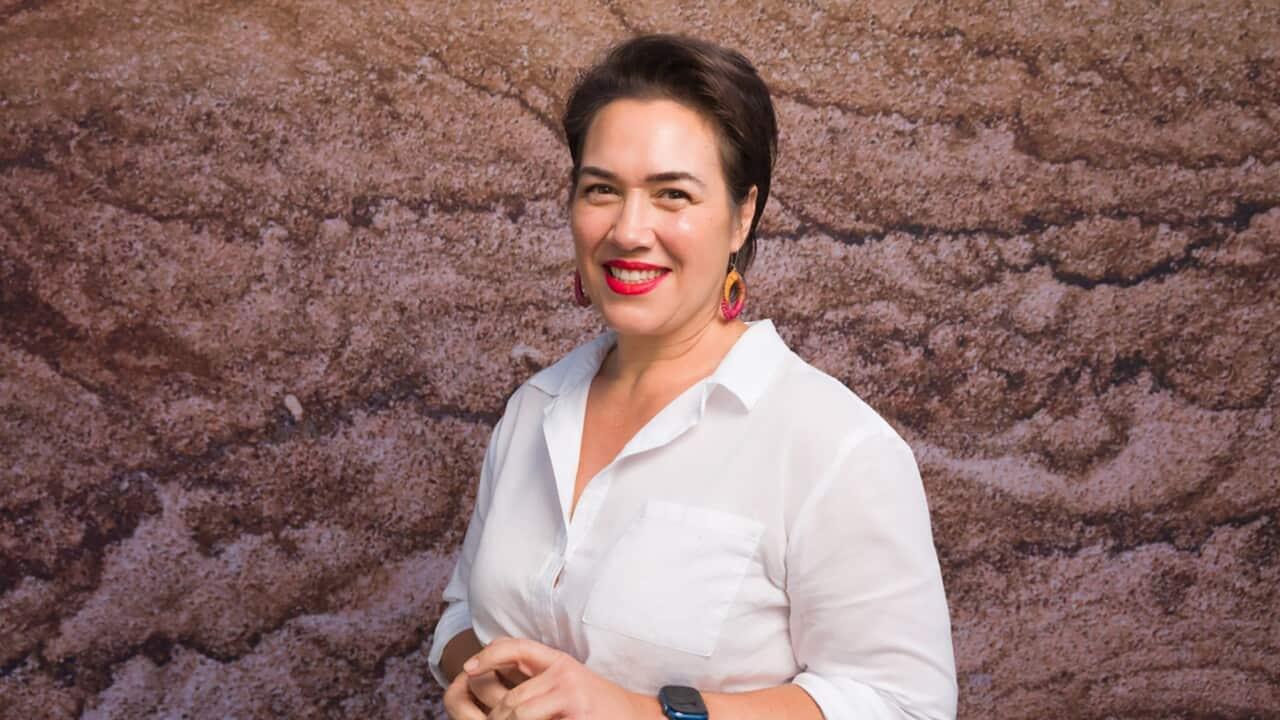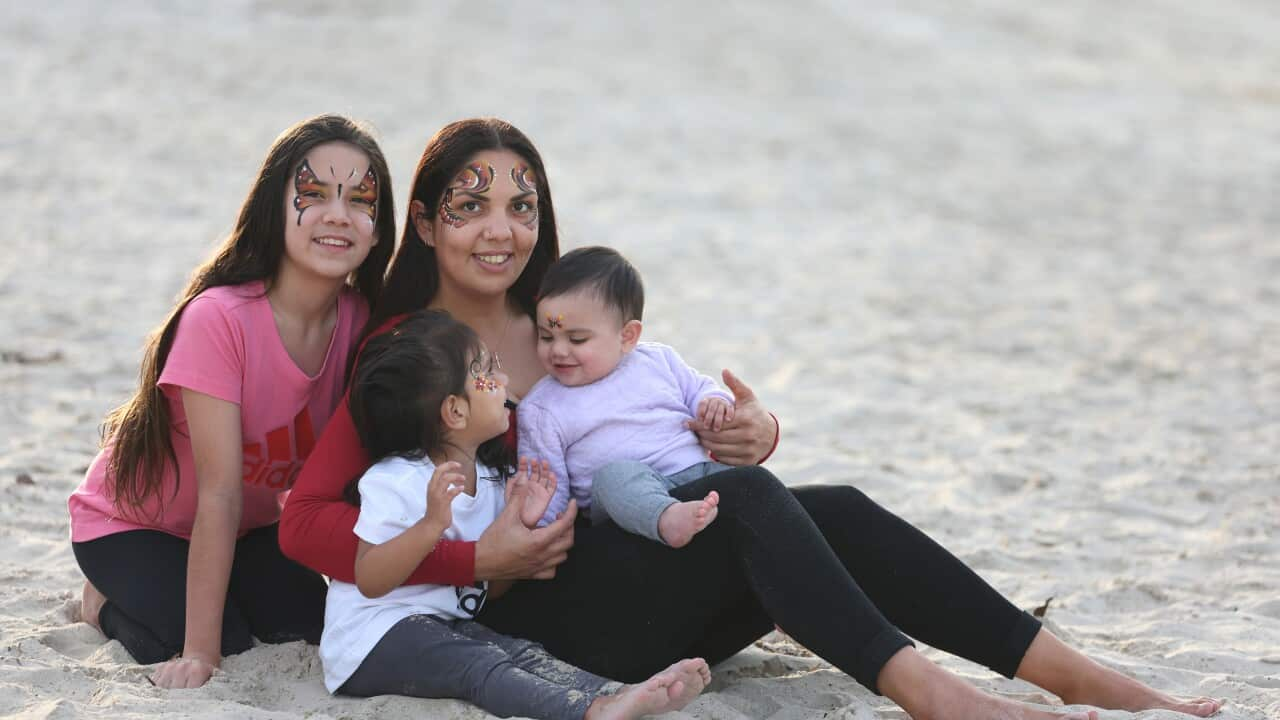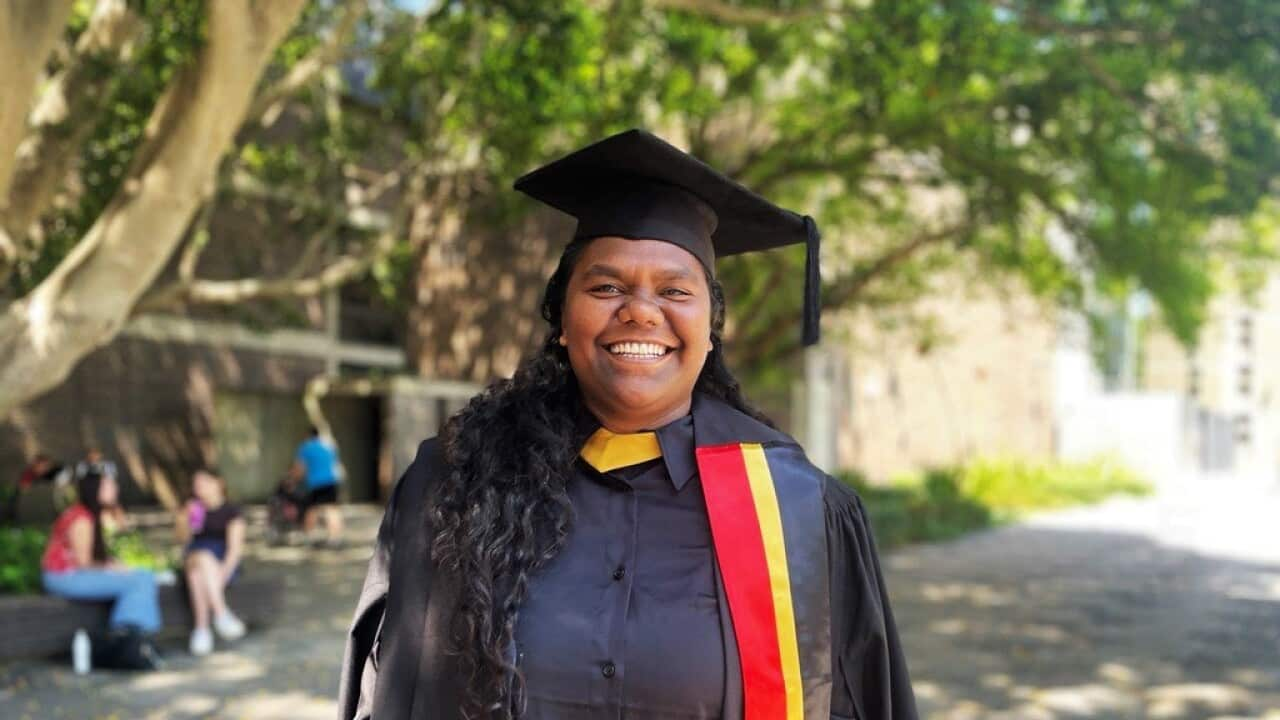Warning: this article discusses themes that may be distressing, such as intimate partner violence.
In October 2018, Tina Lonesborough was ten weeks pregnant, and living in a difficult situation.
"I had to leave a very bad DV relationship," the Yuin woman told NITV.
"I was in a homeless shelter [that] wasn't culturally appropriate. It was run by white German people that wouldn't even allow my midwives to come visit me.
"They wouldn't allow shopping to be delivered. You had to walk five kilometres from the shop with your own shopping."
That stress was compounded by a deep fear; that when her child was born, they would be taken away.
"When [the Department of Child Safety] became aware that I was pregnant again, they were instantly on me.
"They said they were going to take my child, and I turned around and said, 'No, you're not, because I'm away from the father, I'm not using drugs.'
And this time, she had someone in her corner.
On the advice of her doctor, she connected with a local program for pregnant Aboriginal women: Birthing in Our Community (BiOC).
Run by the Institute for Urban Indigenous Health (IUIH), a Community Controlled Health Service north of Brisbane, the program partners with Aboriginal health services and hospitals in southern Queensland to provide culturally safe care for any woman carrying an Indigenous baby.
"The most important aspect of this model is the wraparound service," said Kristie Watego, Service Development Manager at IUIH.
Mum will have an Indigenous woman walking beside her, a family support practitioner who will be with her from the first entry point up until that baby is three years of age.
"Mum and that family support practitioner will get to know each other and build a strong relationship where Mum will feel comfortable and safe to disclose any opportunity to improve on her ability to parent, or perhaps vulnerabilities that exist within her life."
The practitioner is then able to connect the mother with services that can assist her through pregnancy, which might be as simple as organising transport to antenatal appointments, or perinatal psychologists helping mothers to unpack complex trauma.
"But importantly, it's about a sense of belonging and a sense of identity: being able to go to a safe space that belongs to mob, for mob," said Watego, a Bundjalung woman.
"You walk in and there's a Blackfella sitting at reception to welcome you in; there's always a connection within community.
"We always know someone's Auntie, your cousin."
Keeping families together
The program has had some astounding results.
Research published this month by the International Society for Prevention of Child Abuse and Neglect showed there had been a significant reduction in the number of child removals for women involved with BiOC.
In a study conducted between 2013-2019, 1988 women pregnant with Indigenous babies were offered either standard care or the BiOC service.
In that time 944 women (960 babies) received BiOC care while 1044 women (1048 babies) received standard care.
Thirty-one women who received standard care had their babies removed by child protection services at birth, while only nine of the women who received BiOC care had their babies removed.
The BiOC model of care also showed a significantly lower removal rate (9.5 per 1000) than the 2021-22 national rate of 57.8 per 1000.
It comes as no surprise to Watego.
"When mob work with mob, we know truly what is needed to support that family to be the best that they can be," she told NITV.
BiOC representatives attend all meetings with the Department of Child Safety to advocate for the mothers, "challenging their perceptions and assessments" of families.
For Tina, that support was invaluable.
"Anytime Child Safety wanted to speak with me, [BiOC representatives] were present as witnesses as well, and to interject on my behalf, and to correct Child Safety.
"Every time they required a drug test from me, somebody from BiOC was always present to make sure that Child Safety couldn't say that the drug tests were done incorrectly.
"They really went all out to help me."
Watego says it's a necessary buffer for vulnerable mothers, especially for First Nations families.
"So it is about shifting that power and the narrative and working with the families to talk to their strengths, rather than someone who has the authority coming in saying 'You are not good enough.'
"Because we can absolutely see that there is a bias that exists.
"Their assessment is not aligned to the way in which we live, and not aligned to our overall wellbeing."
Building a community
Tina's son will be five next month.
"He's a normal, healthy, happy little boy," she said.
While he lives with autism spectrum disorder, Tina is proud of the progress he makes every week.
It's a pride she feels for herself as well.
"I've got a four bedroom home. I've got my own car now. I'm never behind on my bills. I've got hundreds of dollars saved in the bank. I no longer smoke cigarettes ...
"Honestly, I think it is all to do with the help from BiOC. If it wasn't for them, I wouldn't be where I am now."
For Kristie Watego, helping mothers is reward enough, but the rich community she is helping build along the way is special.
"These women that access the program are women that I grew up with. So we already have this sisterhood.
"My youngest son is now going to prep with a little BiOC baby.
"And seeing those two little fellas run around the schoolyard is really important to me cause that's us growing mob, isn't it?"














